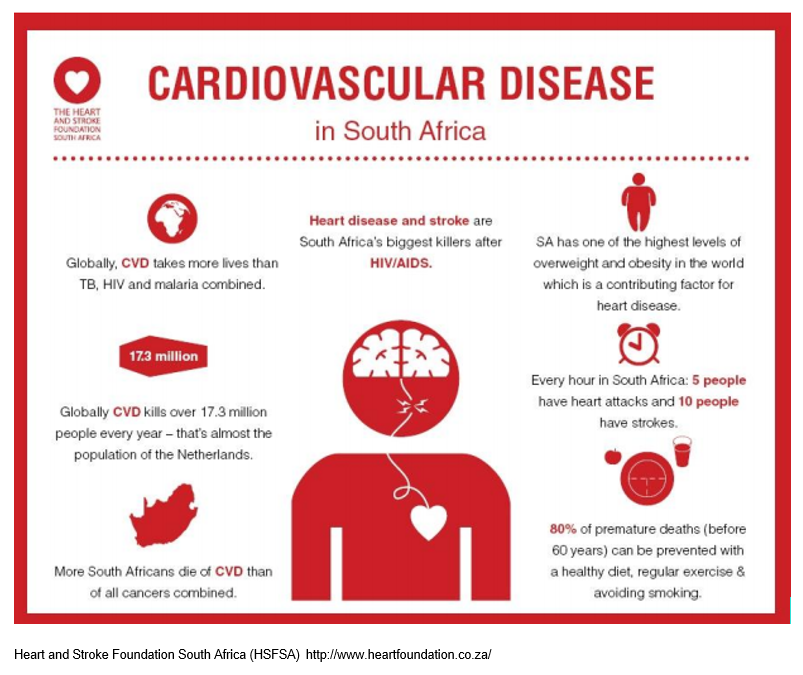Learn more how to manage patients to avoid this premature cause of death through appropriate lifestyle adaptation and latest treatment options!
Despite exponential advances in both clinical research, technology and in the pharmaceutical field over the last decade, cardiovascular disease (CVD) is still the leading cause of disability and death worldwide after HIV/AIDS. It accounts for 17 million deaths a year globally (31% of total global deaths).
In South Africa, it ranks amongst the top five causes of all deaths for both males and females (Males 4.6% and Females 5.8%) 1. At least 150 people succumb daily directly due to or as a result of underlying heart disease. Once thought to be a disease associated with the elderly, it now affects younger people - more than half of the CVD-related deaths that occur are people younger than age 65. Furthermore, if following the current trend, it is expected that premature deaths caused by CVD in people of working age (35-64yrs) will increase dramatically over the next decade – estimated at 41% by 2030.
Yet, notwithstanding the above, up to 80% of CVD-related premature deaths in younger people (< 65 years) are entirely preventable through a healthy lifestyle – a healthy diet, regular exercise and by avoiding smoking. According to the Heart and Stroke Foundation 2, more South Africans die of CVD than of all cancers. CVD is responsible for almost 1 in 8 deaths (12%) in South Africa according to the latest STATS SA causes of death report.

It is through this background that the Foundation for Professional Development has developed a short learning programme on Clinical Management of Cardiovascular diseases. This short learning programme covers a variety of topics targeted at the health care professionals in both the public and private sector and is geared towards prevention and management of cardiovascular disease.
FPD’s Short Course in Clinical Management of Cardiovascular Disease
References:
Heart and Stroke Foundation South Africa (HSFSA)
World Health Organization. Global status report on non-communicable diseases 2014. Geneva: WHO, 2014.
Leeder S, Raymond S, Greenberg H. Race against time: The challenge of cardiovascular disease in developing economies. New York: Columbia University, 2004
Bradshaw D, Groenewald P, Laubscher R, et al. Initial burden of disease estimates for South Africa 2000. South African Medical Journal 2003; 92: 682-688